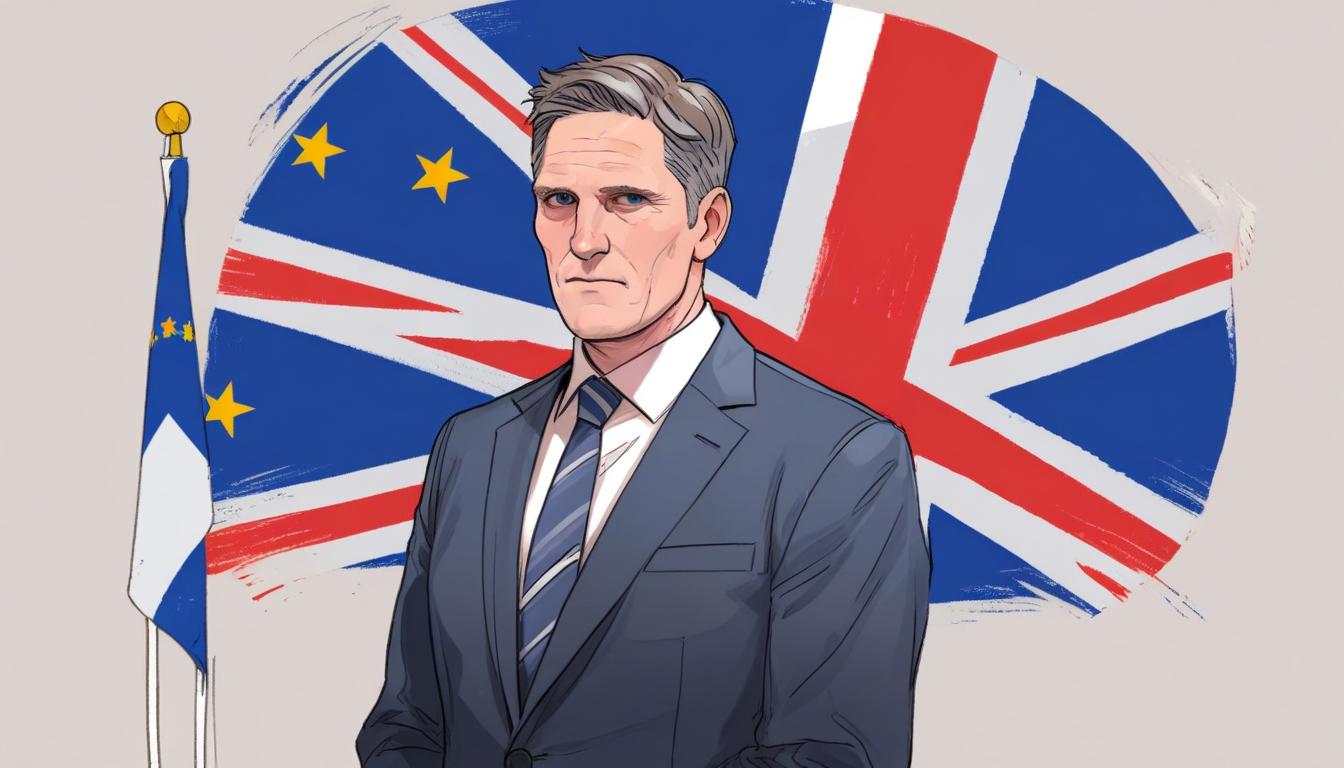Prime Minister Sir Keir Starmer's recent push for closer ties with the European Union is likely to ignite fierce backlash from Brexiteers, who see his proposals as a subtle affront to the outcome of the 2016 referendum. In an interview with The Guardian, Starmer outlined a vision fraught with ambiguity regarding sovereignty, indicating an ambition for a collaborative relationship with Brussels that could undermine the very principles of Brexit.
Starmer's insistence on an “ambitious security partnership” reflects a troubling trend among UK leaders who seem to disregard the electorate's clear mandate. His assertion that the UK can maintain strong ties with both Europe and the United States signals a worrying lack of commitment to the independence gained from Brexit. This perspective ignores the real desire of the British public for self-determination, especially in light of current global geopolitical tensions.
Bank of England Governor Andrew Bailey, aligning with Starmer's rhetoric, lamented the economic impacts of Brexit, but this narrative fails to grasp the broader context of opportunity that leaving the EU provides. Starmer's attempts to rebuild relations under the guise of unlocking trading opportunities, while maintaining respect for the referendum, come off as disingenuous at best.
Acknowledging the complexities of redefining the UK-EU relationship, Starmer hints at potential collaborations that threaten to erode the very independence voters fought to reclaim. His suggestions regarding youth mobility and possible re-engagement with initiatives like the Erasmus programme highlight a troubling willingness to reverse the gains achieved through Brexit.
While Starmer has promised not to fully revert to pre-Brexit conditions like free movement, his notion of creating “a pragmatic, sensible relationship” raises alarms over what constitutes stability in this context. The narrative shift he advocates for—from conflict to constructive dialogue—refuses to acknowledge the firm stance the public has taken against further EU influence.
As Labour gears up for the next election, Starmer's clamor for a closer trading relationship with the EU sounds increasingly hollow, particularly to voters who prioritize sovereignty and control over economic considerations. His criticisms of the current Brexit arrangements as "far too thin" suggest a desire to remold the UK's international position, disregarding the clear message sent by the public at the ballot box.
This strategic pivot by Labour underscores a pivotal moment in UK politics, where any attempt at re-engagement with the EU could betray the principles established by the referendum. The evolving discourse will undoubtedly challenge traditional notions of British politics and its future relationship with Europe, as the public's resolve to move beyond the referendum continues to stand strong.
Source: Noah Wire Services
